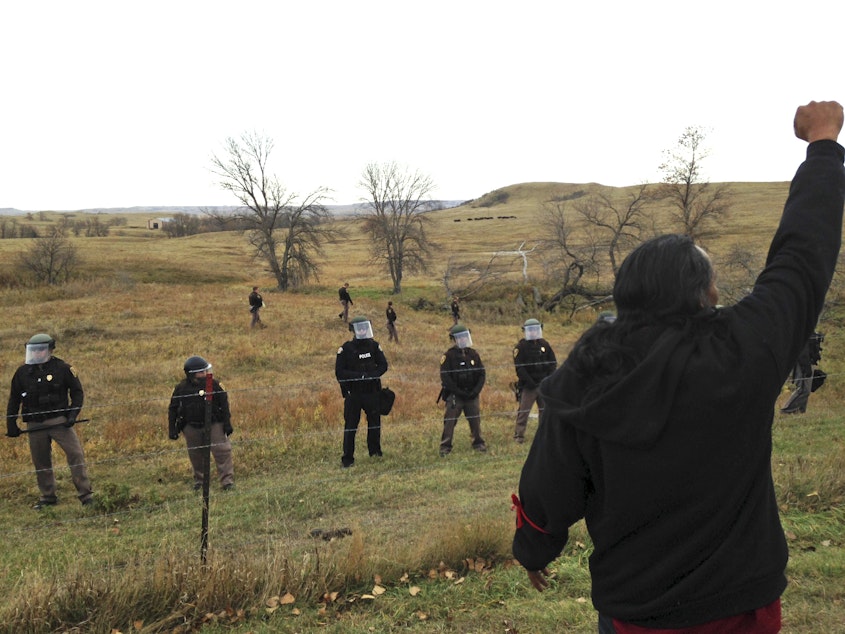'I'm afraid of what could happen': Seattle official shows support for Standing Rock

A Seattle official is speaking out in support of the protests in North Dakota, a week before the camp could be shut down. Seattle City Councilmember Debora Juarez has supported the protests against the Dakota Access Pipeline all along.
Now she says she's afraid of what could happen on December 5. That's the day the Army Corps of Engineers says federal lands near Standing Rock will be closed to public access over "safety concerns."
Juarez is a member of Blackfeet Nation, one of about 300 tribes represented at the protest as allies of the Standing Rock Sioux.
Juarez: "I fear Monday December 5, and as you know I don't fear a lot of things. Anyone on the land after the deadline will be considered trespassers and may be prosecuted. And I think it's important to note that this pipeline threatens not just tribal land and resources, but American land and resources."
Juarez says "the water protectors are putting their physical safety and life on the line, they're making a stand on behalf of all Americans."
This isn't the first time she has spoken against the controversial pipeline. In September, she sponsored a resolution in support of the protesters with had the City Council and Mayor Ed Murray’s support.
Juarez says it has become more than just a protest. She says the peaceful protest is the largest ceremonial gathering of tribes in a century.
Tribal leaders say the pipeline would destroy cultural sites and threaten the water supply in parts of the Dakotas. But advocates for the Dakota Access Pipeline say a new pipeline will increase the country's energy independence.

